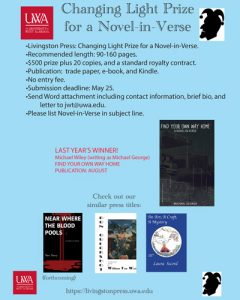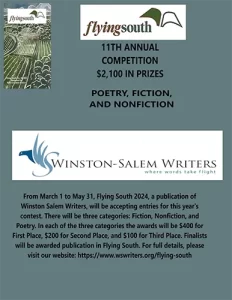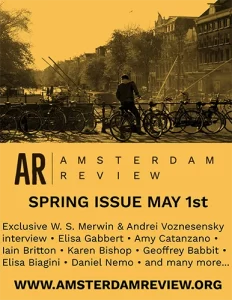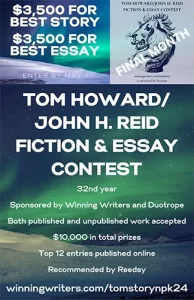Tin House – Fall 2011
Volume 13 Number 1
Fall 2011
Quarterly
Mark Danowsky
A little of this, a little of that, effectively used white space, not over-crowded by images or advertisements, Tin House provides for a generally pleasant read. This issue of Tin House is subtitled “The Ecstatic.” This, along with the sheer caliber of her writing, explains the inclusion of Kelly Link’s “The Summer People” in this issue. Her characters are most definitely of ecstatic stock.
A little of this, a little of that, effectively used white space, not over-crowded by images or advertisements, Tin House provides for a generally pleasant read. This issue of Tin House is subtitled “The Ecstatic.” This, along with the sheer caliber of her writing, explains the inclusion of Kelly Link’s “The Summer People” in this issue. Her characters are most definitely of ecstatic stock.
Ask yourself to what length you’re willing to suspend your disbelief. This appears to be an unsaid challenge of a Kelly Link story. Channeling magic realist elements from the likes of Marquez and Borges, Link makes the impossible somehow plausible. In the following passage, Fran, who comes from an impoverished broken home, shows her wealthy classmate Ophelia how to work a toy called a monkey egg:
She wound the filigreed dial and set the egg on the floor. The toy vibrated ferociously. Two pincerlike legs and a scorpion tail made of figured brass shot out of the bottom hemisphere, and the egg wobbled on the legs in one direction and then another, the articulated tail curling and lashing. Portholes on either side of the top hemisphere opened and two arms wriggled out and reached up, rapping at the dome of the egg until that, too, cracked open with a click. A monkey’s head, wearing the egg dome like a hat, popped out. Its mouth opened and closed in chattering ecstasy, red garnet eyes rolling, arms describing wider and wider circles in the air until the clockwork ran down and all of its extremities whipped back into the egg again.
Reading a Kelly Link story is a reminder that fictional stories are limited only by the imagination of their author. Link’s imagination knows no bounds. “The Summer People” is a longer piece than some of her earlier work, but there is no change in the amount of creativity packed into this story.
In a section entitled “Last Word,” former Poet Laureate Billy Collins offers “A Word About Transitions.” He humorously explores the use of language in poetry:
Moreover is not a good way to start a poem
though many begin somewhere in the middle.
Secondly does not belong
at the opening of your second stanza.
Furthermore is to be avoided
no matter how long the poem.
Aforementioned is rarely found
in poems at all, and for good reason.
In an essay about contemporary interest in eco-Judaism and the lesser-known Tu Bishvat seder, Leah Koenig explains:
The apartment belonged to a bearded Vancouver transplant who was a central figure in Brooklyn’s eco-Jew community. We were there to celebrate Tu Bishvat—a minor Jewish holiday colloquially known as the “New Year of the Trees.” When I was growing up as a religiously clued-out Jew in suburban Chicago, Tu Bishvat was never a blip on my radar. Now I was surrounded by a group of fellow twentysomethings who had purposefully set aside a Tuesday night to celebrate a Jewish tree holiday.”
Also in this issue, an interview with and poetry by freedom fighter Ben Okri, several images from Matt Kish’s Moby-Dick in Pictures: One Drawing for Every Page, and poetry by Dorothea Lasky. In Lasky’s “Why it is a Black Life,” she writes, “Because nothing is permanent / And everything goes on and on not meaning anything / Because I am an animal / And I will always be displaced / Until I die” On a lighter note, Lasky’s other poem in this issue is titled “I Like Weird-Ass Hippies.”
In a 2008 interview with William H. Coles of Story in Literary Fiction, Editor Rob Spillman of Tin House explains that good writing will make itself known. He suggests that those thinking about submitting their work to Tin House should avoid two common mistakes: “Throat clearing at the beginning of a story” and what he calls “Doogie Howser syndrome”:
At the very end [of a Doogie Howser episode] he always sat down at his computer and typed into his diary “What I learned today is that friends are invaluable.” And even good writers will do this. They will keep you engaged for twenty pages and then they will pull back and say, “What I learned today is that friends are invaluable.” No, No. No, No. You’ve been showing us for twenty pages. You don’t need to.
Spillman also reminds writers to have confidence. “I don’t care what genre, what voice, where the setting, I will go anywhere if it is confidently told. If you firmly take me…that’s a hard thing, you know, to never apologize, jump in, and tell your story.”
Tin House is dedicated to providing exceptional content to their subscribers.
[www.tinhouse.com/]




